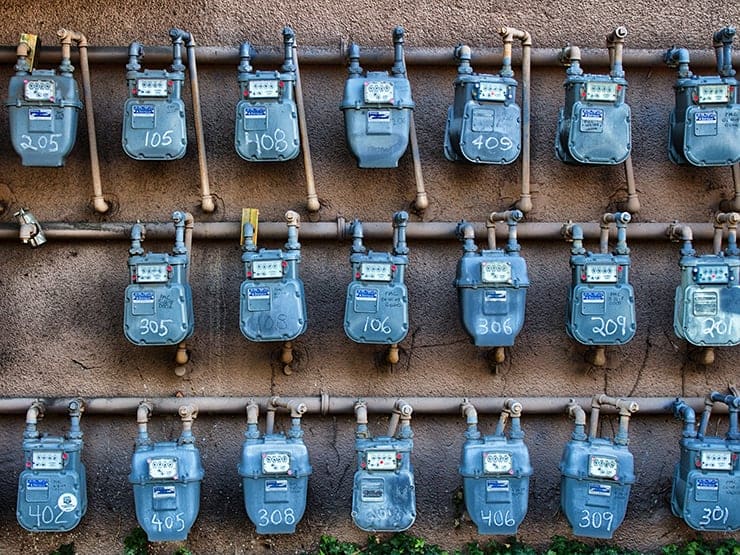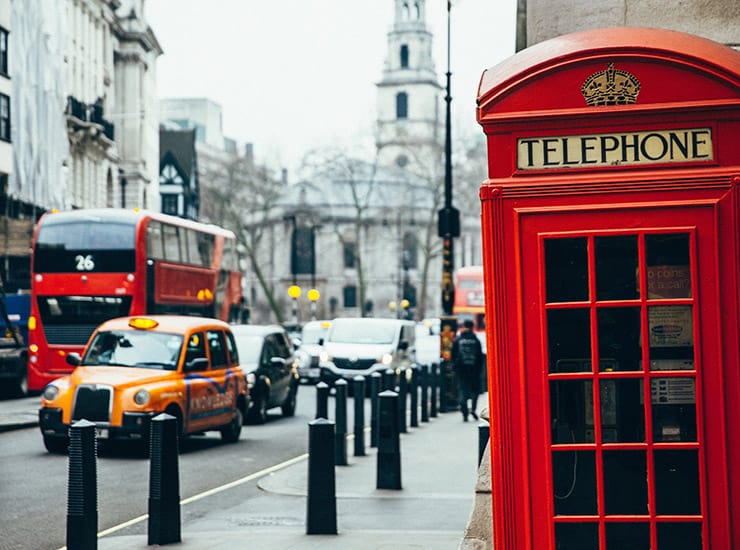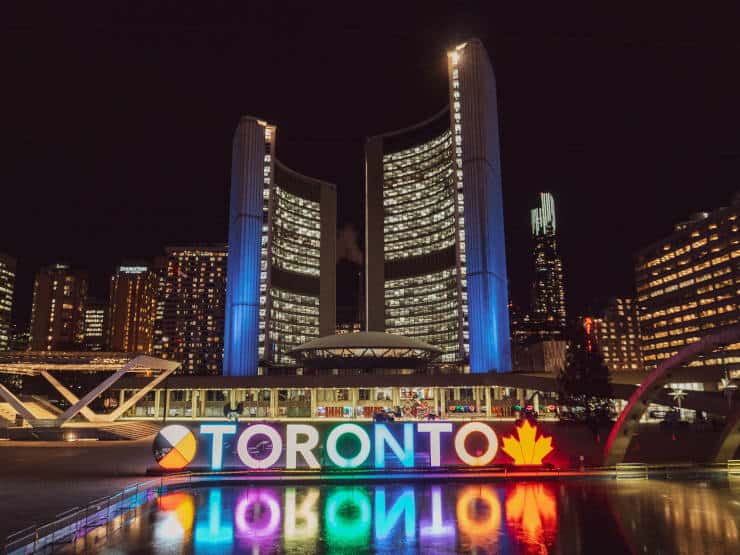Photo credit: Burst on Pexels
How Much Does it Cost to Live the FIRE Life in London?
Hello, and welcome to interview #25 in the How Much Does it Cost to Live the FIRE Life interview series! Part interview, part spending report, this series will introduce us to FIRE* seekers from all over the world.
They’ll reveal their essential spending and money-saving tips—all to help us learn new ways to save on our own expenses. As a bonus, we’ll also get to discover the unique advantages and challenges of living in different places around the globe.
*FIRE stands for financial independence, retire early. It’s also known as FI—financial independence. For more info, see my FI School series—it’ll teach you everything you need to know about FI (and FIRE).
About the interview series
I created an intro page for this interview series to help explain what it’s about, what’s included (or not) and why. I’ll also link to all the interviews from the intro page—so check back there to see the entire collection.
Jump to the series intro: How Much Does it Cost to Live the FIRE Life? (The Interview Series)
Disclosure: These interviews may include affiliate links. That means I’ll receive a commission if you make a purchase through my links—at no extra cost to you. Thank you!
Interview #25: Kathrin from London
In today’s interview, we’ll meet Kathrin from the A Chat With Kat blog. Kathrin is originally from one of my favourite European countries (Switzerland). And she currently resides in one of my favourite European cities—London!
I met Kathrin in a Twitter blogger group I’m part of (I’m telling you, if you’re a money blogger, you need to be on Twitter!) Kathrin filled out her interview for me a while ago but graciously offered to update it so that I could publish it with her latest numbers. Thank you, Kathrin!
About A Chat With Kat
At A Chat With Kat, Kathrin writes about health, anatomy, finance (including FIRE), self-employment and even philosophy. I love that she covers a wide range of topics on her blog. They’re very much intertwined, and that’s helped me learn about things I may not have otherwise delved into.
I also appreciate Kathrin’s practical, mindful approach to life. I find A Chat With Kat to be a soothing, calming read but also motivational and energizing. It’s hard to not feel like getting off my butt and working out after reading about Kathrin’s many active pursuits!
I hope you enjoy exploring Kathrin’s posts on A Chat With Kat. But before you leave, be sure to check out her interview below. Kathrin shares lots of great tips to save big while living in one of the world’s most expensive (and desirable) cities.
Table of Contents
Part 1
Part 2
Part 3
Part 4
Part 1: Getting to know you

Kathrin from A Chat With Kat
Tell us about yourself
My name is Kathrin and I’m a 28-year-old German tutor and Pilates teacher currently living in North London. Since the pandemic, I have also started content writing, which has grown into a great part-time job.
I grew up in Switzerland, but moved to London in 2017 to pursue my freelance career. Currently, I live alone, but I have recently met someone and might eventually live with him.
Aside from my work with clients, I also love to write and edit, both fiction and nonfiction. I blog about FI books at Banker on Wheels and can also be found on Twitter.
Where are you in your journey to FIRE?
Because self-employed work is very unstable, pursuing financial independence seemed like a logical step for me. The less I depend on my income, the less I have to worry about these fluctuations. This also means that I can serve my clients much better without worrying about my own financial gain.
For these reasons, I started pursuing FIRE quite early on in my career. In the past 3 years, I have been able to accumulate around one half of my initial FI goal. I am now hoping to reach this in my early 30s and then either move to part-time work or keep striving for a ‘fatter’ version of FIRE.
What type of FIRE are you aiming for? (FIRE, Lean FIRE, or Fat FIRE*)
How Chrissy defines FIRE, Lean FIRE, and Fat FIRE
Some people define Lean FIRE as under $40k in annual spending; FIRE as $40–$100k in annual spending; and Fat FIRE as $100k+ in annual spending.
However, I prefer looser definitions that are not based on hard numbers. That’s because $100k could be Fat FIRE in a small Canadian town but Lean FIRE in San Francisco. That said, here are my definitions:
- Lean FIRE: The essentials with little or no discretionary spending.
- FIRE: The essentials plus a comfortable amount of discretionary spending.
- Fat FIRE: The essentials plus a luxurious amount of discretionary spending.
My initial FI number is quite lean and would mean that I need to do about two full days of work per month, or one half-day per week. When I first laid out my plan, this made a lot of sense because I enjoy my work and am not planning on giving it up completely. In fact, I am likely to always teach for at least two days per week, especially now that students are more open to taking their lessons online.
Since I have progressed faster than I anticipated, I might set my sights a bit higher and go for a more traditional FIRE number in the future.
Tell us about your living situation
I rent a top-floor studio apartment of 36 square meters (387 square feet) plus a large terrace (16+ square meters). By London standards, this is a very luxurious set-up, especially considering that there is a terrace. Housing is by far my most important expense, and I really value having a beautiful home where I feel comfortable.
However, the flat is located in Zone 4, which is generally considered suburban. This suits me very well because I can cycle to the edge of London and enjoy the fields and farmlands beyond. At the same time, I can also easily commute to the studio, which is located in Zone 2. Many of my clients live in this area, so if necessary, I could commute to their houses for in-person sessions.
Walkability is excellent in my area, and I can easily access all the essentials within ten minutes’ walking distance. I live on the local high street, so the nearest grocery shop is just across the street. The doctor’s office and local library are a 7-minute walk away, and there are plenty of smaller cafes and shops to choose from on my street. That’s why I don’t need a car and can do all my commuting by bike.
There are decent transport links: the bus stop is just a few metres away, and the train station is around the corner. There is no underground (tube) access, but the trains generally run well and can take you to central London within 20–30 minutes. This is just a backup option for me because I almost always cycle.
Why did you choose to live in London?
Initially, I wanted to live in New York because that is where I trained as a Pilates instructor. However, it would have been very hard to get a visa for that job, and my teacher training school advised me not to do it. So, I thought about what other city I could start a similar career in. Since Brexit had just happened, it struck me that this might be my last chance to easily establish myself in the UK.
London offers some unique advantages:
- It’s closer to family than NYC, so I can visit them several times a year.
- There are many millions of residents, so definitely enough of a client base.
- Pilates is well established here, with several very good studios.
- German is offered as a school subject in many schools, which means that I have lots of students interested in tutoring.
I came here with no job and around 6 months’ living expenses, but was able to build up my business within half a year. Now that I moved to North London, I am very close to the edge of the city and can go for long bike rides or hikes out in the open. I can easily commute to the city but also enjoy all the perks of living close to the countryside.
Part 2: The expenses
In this section, Kathrin shares her essential expenses and best money-saving tips. But before we get started, let’s review some important notes:
Important notes about the numbers
- Only essential expenses are included.
- Discretionary expenses (e.g. travel, gifts, etc.) are not included.
- Expenses are rounded to the nearest dollar.
- Expenses are displayed in the interviewee’s home currency.
- In this interview, the home currency is British Pounds—£.
- For your convenience, I’ve included a currency converter in each section. I hope you find it useful!
For detailed explanations about which expenses are included (or not) see my How Much Does it Cost to Live the FIRE Life intro post.
1. How much does housing cost in London?

Rent (£925/month; £11,100/year)
The rent is frozen for two years, and I negotiated it down from £950. My apartment has one medium-sized bedroom/living room, one large kitchen with enough space for a dining table and two chairs, a small upstairs hallway, and a small downstairs hallway. The setup is excellent because I live on the third floor, but I have private hallway space on the second floor, so I can leave my bike, shoes, and coats downstairs.
The place also includes a large terrace facing away from the main road. Our row of houses is the highest in the area, both in the back and the front. From my south-facing bedroom window, I can see the entire skyline of London, and from the terrace, I see trees and rooftops.
This place came unfurnished, which is rather unusual for London. The majority of smaller apartments come with all furniture included.
The rent is a bit higher than for my previous place, but I decided that the area and the terrace are worth paying a bit more for. My move also coincided with the purchase of my ebike, so I knew that I wouldn’t have to spend on public transport anymore, and my annual expenses would stay the same as before).
Council tax (£82/month; £984/year)
Council tax covers things like waste removal, street maintenance and public services such as libraries, which are free to use. Each household has to pay a certain amount, which depends on the size of the house. My property is valued in Band B (A is the cheapest, H is the most expensive). Since I am a single person household, I get a 25% discount on council tax.
Note: Council tax is similar to property tax in Canada and the US. However, in England, it’s not necessarily the landlord who pays this tax. It depends on the situation, but it’s generally whoever lives in the property that’s responsible for paying the council tax.
Strata/HOA fees (£0)
Since I am not a homeowner, I do not have any such fees.
Home insurance (£0)
I could get contents insurance for my flat, but most of my possessions are not valuable enough for me to justify this. My furniture is now four years old, and the resale value would be minimal, and my electronic devices are usually with me when I leave my house. The only valuable possession I keep in my flat is my bike. When I am away on holiday, I usually lock this up.
Home maintenance (£15/month; £180/year)
This category includes: home maintenance, repairs, cleaning, and improvements; household goods and supplies; furniture; and appliances.
Being a renter, I don’t have to pay for any repairs and maintenance. My current lettings agents are diligent with repairs and always call me back when I have an issue. They maintain and purchase all appliances such as the oven, hob, washing machine and fridge/freezer.
I am very meticulous about cleaning the flat, but don’t use especially expensive products. You can get a large bottle of everyday cleaning product for £1, which you can then dilute. Bleach is about 50p. One bottle of each usually lasts me for a year. I also own a vacuum, and the flat came with a broom.
2. How much does transportation cost in London?

Vehicle loan, insurance, gas, and maintenance (£0)
I don’t have a car because this simply doesn’t make sense for me at the moment. In fact, I don’t even have my driver’s license yet. I was working hard on it before Covid and would have gone for the exam in April, but lockdown hit a month earlier, and all exams got cancelled. Hopefully, I can get my driver’s license this or next year, but even if I do, I will not purchase a car.
Bike maintenance (£15/month; £180/year)
I purchased an expensive electric bike last September. So far, I have had to make a few small purchases such as a puncture kit and spare inner tubes. However, I’m anticipating an annual service of around £100 and some potential repairs along the way. Using the bike will still be a lot cheaper than commuting by public transport.
Parking and tolls (£0)
Parking my bike is free because I keep it in my hallway. When I visit people, I can fold it up and take it inside with me.
Transit (£25/month; £300/year)
I am currently spending £0 on transit but am anticipating an occasional expense, either for very long commutes or for meetups with friends, where I can’t really take my bike. I’m not yet confident leaving it tied up outside, so if I can’t take it inside with me, I have to take public transport.
3. How much does food cost in London?

Groceries (£70/month; £840/year)
I eat a vegetarian diet, so my food bill is not very high. In the past months, I have started to do click and collect at Tesco once or twice a month, which means that I shop online, then go to the branch to collect my food. There’s a minimum spend of £25, so I take this opportunity to stock up on essentials and foods that don’t go off. In the other weeks, I pop across the street to top up on fresh foods and anything I missed out on. These shops are usually considerably cheaper.
I only have takeout once a month or less. I simply have not set up any of the apps on my phone, so when it’s time for dinner, ordering food doesn’t even cross my mind. It helps that I am a very boring eater and can happily have the same meal three or four days in a row.
Related reading: How to Save Money on Groceries (36 Valuable Tips) and Detailed Flashfood Review (Groceries for 50-70% Off)
Eating out (£30/month; £360/year)
This budget is a relatively high estimate because I don’t go out to eat very often, maybe once a month. I do enjoy a good restaurant meal, but for me, it’s a special occasion and not an everyday occurrence. Making my meals from scratch at home is just as fun and tasty, especially when I get to experiment with different ingredients from my olio collections.
Other than a once-monthly dinner, I might meet friends at coffee shops, outside for a picnic, or even occasionally at the pub. Some of my friends are also FI enthusiasts and others don’t know so much about my FI plans, but they tend not to be huge spenders.
4. How much do utilities and bills cost in London?

Natural gas (£12/month; £144/year)
I use very little natural gas, and it is much cheaper than electricity per unit. My flat stays warm because it’s top-floor and the room is south facing, so flooded with sunlight.
Electricity (£22/month; £264/year)
The electricity bill is a little higher, especially in winter. It can get dark as early as 3.30pm in London. According to my tenancy factsheet, all the fixtures are energy-saving, so the cost is not too extreme.
Water (£23/month; £276/year)
My water bill is higher than it should be. I use very little water, about half of the expected amount for my household size. However, the bill in this new place is a flat rate, not metered.
Garbage and recycling (£0)
Included in the council tax bill.
Internet (£20/month; £240/year)
I am still with the same provider I started out with when I was new in London. My loyalty and persistence in negotiating discounts has paid off, and my total cost has only increased by £1.
Home phone (£0)
I don’t have a home phone or TV license.
Cell phones (£10/month; £120/year)
My mobile phone is second-hand, so it only cost £70. I am on a cheap plan that includes 15GB of data and unlimited calls and texts. Occasionally, I buy some extra credit for international calls.
Streaming entertainment and cable TV (£0)
I don’t pay for any streaming services, but my mother kindly lets me use her Netflix account.
5. How much do other essentials cost in London?

Life and disability insurance (£7/month; £84/year)
I don’t have any dependents and all of my relatives are reasonably well off, so I don’t currently have any life insurance. If I were to become gravely ill, I would most likely move back to Switzerland to be with my family, so it doesn’t make sense to get any English disability insurance.
Medical insurance (£0)
Basic healthcare is free in England through the NHS (National Health Service), and I don’t yet have a private insurance plan. I have used the NHS several times. It works well enough for my limited needs.
Out-of-pocket medical expenses (£4/month; £48/year)
This is for dental needs. A checkup is only about £25, but I am anticipating occasional greater needs over the years, such as pulling a tooth.
Clothing and footwear (£10/month; £120/year)
I don’t buy clothes very often and use the ones I have until they are no longer of good quality. If I do buy something, it’s often from a charity shop, but I also buy some new clothes if I really like something. My mother loves to give me clothes as Christmas or birthday gifts and sometimes also passes things she bought but doesn’t wear on to me, which reduces this spend slightly.
Personal care (£5/month; £60/year)
This category includes: haircuts, toiletries and grooming services and supplies.
I don’t cut my own hair, so I have it done professionally about twice a year. Other than that, my spend is minimal because I don’t go through many beauty products. In England, you can get the essentials very cheaply, although there are brand-name or luxury versions available.
Technology (£14/month; £167/year)
This category includes essential technology: software and hardware purchases, upgrades, maintenance, and repairs. Non-essentials (video games and consoles, e-readers, security cameras, etc.) aren’t included.
I need a laptop and a phone for my work, which I plan on replacing every three years. I assumed a cost of £500 for a high-quality refurbished laptop and £200 for a refurbished phone. This is a high estimate—I got my last phone for £70 from a friend who would have thrown it out otherwise!
Additionally, these items are tax deductible because they are business expenses, so the actual cost is around £500 per three years, or £167 annually.
Part 3: Adding it all up
Now that we’ve detailed all of Kathrin’s essential expenses, it’s time to add everything up in some nice, organized tables!
Important notes about the numbers
- Only essential expenses are included.
- Discretionary expenses (e.g. travel, gifts, etc.) are not included.
- Expenses are rounded to the nearest dollar.
- Expenses are displayed in the interviewee’s home currency.
- In this interview, the home currency is British Pounds—£.
- For your convenience, I’ve included a currency converter in each section. I hope you find it useful!
For detailed explanations about which expenses are included (or not) see my How Much Does it Cost to Live the FIRE Life intro post.
How much does it cost to live the FIRE life in London?
1. Housing
| Expense | Monthly (GBP) | Annual (GBP) |
|---|---|---|
| Rent | £925 | £11,100 |
| Council tax | £82 | £984 |
| Strata/HOA fees | £0 | £0 |
| Home insurance | £0 | £0 |
| Maintenance | £15 | £180 |
| TOTAL | £1,022 | £12,264 |
2. Transportation
| Expense | Monthly (GBP) | Annual (GBP) |
|---|---|---|
| Vehicle loan | £0 | £0 |
| Vehicle insurance | £0 | £0 |
| Gas | £0 | £0 |
| Vehicle maintenance | £0 | £0 |
| Bike maintenance | £15 | £180 |
| Parking and tolls | £0 | £0 |
| Transit | £25 | £300 |
| TOTAL | £40 | £480 |
3. Food
| Expense | Monthly (GBP) | Annual (GBP) |
|---|---|---|
| Groceries | £70 | £840 |
| Eating out | £30 | £360 |
| TOTAL | £100 | £1,200 |
4. Utilities and bills
| Expense | Monthly (GBP) | Annual (GBP) |
|---|---|---|
| Natural gas | £12 | £144 |
| Electricity | £22 | £264 |
| Water | £23 | £276 |
| Garbage | £0 | £0 |
| Internet | £20 | £240 |
| Home phone | £0 | £0 |
| Cell phones | £10 | £120 |
| Streaming entertainment | £0 | £0 |
| TOTAL | £87 | £1,044 |
5. Other essentials
| Expense | Monthly (GBP) | Annual (GBP) |
|---|---|---|
| Life and disability insurance | £7 | £84 |
| Medical insurance | £0 | £0 |
| Out-of-pocket medical expenses | £4 | £48 |
| Clothing and footwear | £10 | £120 |
| Personal care | £5 | £60 |
| Technology | £14 | £167 |
| TOTAL | £40 | £479 |
Grand totals
| Expense | Monthly (GBP) | Annual (GBP) |
|---|---|---|
| Housing | £1,022 | £12,264 |
| Transportation | £40 | £480 |
| Food | £100 | £1,200 |
| Utilities and bills | £87 | £1,044 |
| Other essentials | £40 | £479 |
| TOTAL | £1,289 | £15,467 |
Part 4: Other expenses
This is a special section that’s just for fun! It’s the place for my interviewees to mention any expenses that they’ve done a really good job of optimizing and/or just want to share.
These expenses won’t be included in the totals (just to keep things as standardized as possible). I hope you find this section interesting and informative. Here’s an additional expense that Kathrin wanted to share:
Going home
Every year, I go home to visit my family multiple times. This is my largest non-essential expense. Since Covid, I’ve been able to extend these trips because I can do 85+% of my work from anywhere, so I often stay 4-5 weeks at a time.
Although these trips are very expensive at the moment with Covid testing, they are a great way of getting a change of scenery. Once I’m FI, slow travel will definitely be the way to go because I enjoy staying in one place for several weeks or even months.
Chrissy’s takeaways
Thanks again to Kathrin for sharing her expenses. It was fun to revisit London (my first London-based interview was in March 2020 with Lionel). I was impressed by Kathrin’s low spending, which I’ll go in-depth on below:
When HCOL isn’t (yet again)!
London consistently appears in “most expensive cities in the world” lists. And yet, another one of my interviewees has proven that you can live affordably in high cost of living areas. How is this possible?!
Through this series, I’ve learned that high cost of living areas are expensive primarily because of housing. This is the most significant difference between LCOL and HCOL areas. All the other expenses make far less of an impact on the cost of living.
Kathrin’s economized on her housing by living in a smaller apartment on the fringes of the city. By saving big on this expense, she keeps her overall cost of living low.
Also, things like groceries, transportation, and utilities can actually be cheaper in HCOL areas. This is largely thanks to the central location and density of HCOL areas (which leads to more competition and economies of scale).
Kathrin’s also done well with her spending in these areas, so it’s no surprise that she’s able to live in London and still aim for FI in her 30s. Bravo, Kathrin!
Biking for the win
Another huge expense that Kathrin’s done well with is transportation. To start with, she doesn’t own a car. This is not only a massive cost saving but a matter of convenience as well. Traffic in London is notoriously bad, and parking is scarce and costly.
A relative of mine lives in London, and the closest she can park to her home is a block away, in an expensive parkade. She found that driving her car was too stressful and costly and decided to give up her car altogether.
London has an excellent transportation system, but even those costs can add up. Kathrin not only doesn’t own a car, but she also doesn’t use public transit! Instead, she gets around almost exclusively by bike.
The purchase price and maintenance costs of a bike (even an e-bike) still pale in comparison to driving or transit. In addition, Kathrin gains health benefits from bike riding (as well as leaving almost no carbon footprint)!
Living healthily and minimally pays off
As I often say in these takeaways, when you master your big three expenses (housing, transportation and food), you’ll get yourself to FI much sooner. Kathrin has done just that by living healthily and minimally: she lives in a small apartment, bikes everywhere, and eats a vegetarian diet.
All of these lifestyle choices have led to huge savings. On top of that, Kathrin’s healthy and fit and isn’t tied down by her possessions. Imagine if more of us could strive, even a little, to live more like Kathrin. I’m certain that we’d be happier and wealthier—and the planet would benefit too.
Closing thoughts
Kathrin has done an impressive job of keeping her expenses low. Despite living in high-cost London, she’s already halfway to her FI goal… after only three years! However, it should be noted that this kind of progress doesn’t just happen.
As I read Kathrin’s interview, it became apparent how thoughtful she is about everything in her life. She’s designed her lifestyle around things she values. This allows her to save money while also maintaining a high level of happiness and life satisfaction.
This thoughtfulness is one of the keys to a successful journey to FI and what sets FI seekers apart from mainstream spenders. We aren’t frugal just for frugality’s sake. Instead, we mindfully prioritize the things that matter to us and cut back on things that don’t.
It’s simple, but not easy. Yet, if you’re able to adhere to this mindset, you’ll find yourself happily on the path to FI. And, like Kathrin and many other FI seekers, you’ll likely also find that you’ll reach FI sooner than anticipated.
Connect with Kathrin
If you’d like to learn more about Kathrin or read more of her content, visit her at her blog, A Chat With Kat. You can also connect with her on Twitter.
Share your thoughts
Were you surprised by Kathrin’s essential expenses? Are any of them significantly different from where you live? Share your thoughts in the comments, along with your own money-saving tips!
Veronica has a unique FIRE story to share, and we broke the mold for her interview! Find out how much it cost her to live in Toronto, then as a nomad, then back in Toronto.
My podcast co-host Money Mechanic lives with his wife in Victoria—BC’s beautiful capital city. It’s a HCOL area, but they do an amazing job of keeping their expenses low!
Visit the intro page to learn more about the what and why behind the series and access the complete list of interviews.
Support this blog
If you liked this article and want more content like this, please support this blog by sharing it! Not only does it help spread the FIRE, but it lets me know what content you find most useful. (Which encourages me to write more of it!)
You can also support this blog by visiting my recommendations page and purchasing through the links. Note that not every link is an affiliate link—some are just favourite products and services that I want to share. 🙂
As always, however you show your support for this blog—THANK YOU!








9 Comments
Court @ Modern FImily
January 5, 2022 at 9:11 pmBravo! These are super impressive numbers for London! So many great “hacks” in here to keep your expenses low.
I hope someone from the Alberta Utility Commissions reads this interview series to see what sort of highway robbery is going on in Alberta when it comes to fixed natural gas and electric rates!
Chrissy
January 7, 2022 at 10:40 pmHi Court—Kat’s numbers are impressive, aren’t they? I’m always shocked by the exorbitant pricing you’re forced to pay in Alberta, especially considering how energy-rich your province is. 🙁
Thanks for reading and commenting, my friend!
Teresa
January 6, 2022 at 2:19 pmYes, those are super impressive numbers for an expensive city like London! It is lovely to hear how upbeat Kathrin is and how content she is with her practical, well thought out lifestyle! Aside from the council tax which seems exorbitant to me, the rest of the expenses are very reasonable. Only bit of advice (as an ex-realtor or estate agent) I would add is about the content insurance that she does not need – I am not sure what the policy is in UK but here in Vancouver, BC, I always advised tenants to purchase tenant insurance which not only covers the contents but the liability should the tenant be responsible for any damage like a leak from a dishwasher that causes extensive damage to surrounding units. Water damage deductibles in some buildings can be as high as $25,000. Just my two-bits worth.
Chrissy
January 7, 2022 at 10:42 pmHi Mom—London is crazy expensive, so it’s absolutely impressive that Kathrin is able to live well on as little as she does.
I didn’t realize that important bit of info about the liability that a tenant may be faced with if they don’t purchase tenant insurance! That’s very scary and could be financially devastating. Tenant’s insurance is very cheap, so it would be a very small expense for important (and I would argue necessary) coverage. Thanks for sharing your knowledge and expertise.
Bob Wen
January 10, 2022 at 6:13 amKathrin is doing astoundingly well in such an expensive city. Well done indeed.
I’ve been reading a fair bit about increasing UK energy costs (as high as +50% when the price caps change in April) which may well be passed on to Kathrin at some point. With such tightly managed spending, Kathrin will be far better able to handle the change than most UK residents will.
Chrissy, have you done a comparison table (including the interview date for inflation adjustments) for the “How Much Does it Cost…”series of interviews?
Chrissy
January 12, 2022 at 4:39 pmHi Bob—Kathrin is an inspiration for sure! Housing costs in London are shockingly high. If not for that, her essential spending would be even lower.
I hadn’t heard about energy costs increasing in the UK. I’ll have to do more reading on it—thanks for mentioning it. A 50% increase is a massive change. I think most people would have a tough time with that. You’re right that Kathrin will likely be able to handle it, given how great she is with her money.
Thanks for the suggestion of a comparison table! I’ve had that exact idea mulling in my head over the last year, and hope to put one together soon. Stay tuned!
Maria @ Handful of Thoughts
January 14, 2022 at 3:48 pmIt never ceases to amaze me how used to space we get here in North America. I’m not sure how many of us here could live in a flat the size of Kathrin’s. But it is totally normalized in other countries. And much cheaper.
Well done Kathrin and being so mindful with your spending.
Chrissy
January 14, 2022 at 8:33 pmHi Maria—yes, we are very spoiled for space in North America! Our European and Asian homestay students always commented on how BIG everything in Canada is (the roads, cars, houses, milk jugs, onions, tomatoes, apples, LOL)! We could learn a thing or two from our international friends… it could lead to more affordable (and sustainable) living for all.
Angie
March 19, 2022 at 7:15 amBiking is great for your health as well! I love this series and I didn’t know that living in London could be so inexpensive! Definitely inspires me to look into moving to the EU or equivalent some time in the future to do LCOL (and the food there is really good as well).